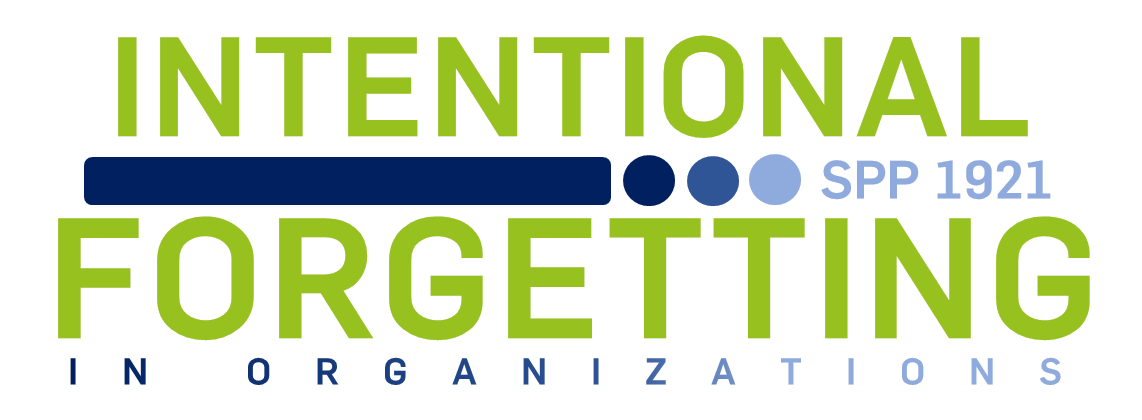
FADEp - Intentionales Vergessen und Änderungen in Arbeitsprozessen: Ein prozesskonditional-orientierter Ansatz im Verwaltungs- und IT Kontext
2016 - 2020: FADE - cognitive-informatic methods of forgetting
2020 - 2023: FADEp - Intentional Forgetting and Changes in Work Processes
- What is this project about?
As humans, we thrive on routines - also at work. Yet, forgetting about old
routines and setting up new ones can be necessary to make forward progress.
Thus, it is no surprise that rapidly changing work environments require us
to adapt existing work routines and workflows regularly. However, forgetting
and straying away from the routines that we have come to know and used to
can be difficult and cognitively effortful.
The FADEp project aims to explore how we can change existing work routines
and workflows while keeping the cognitive effort associated with change to a
minimum. To achieve this, we will employ a joint view from logical methods
for dealing with plausible reasoning and insights from cognitive psychology.
Thereby, we strive to develop an interdisciplinary model of intentional
forgetting that integrates methods for formally founded recommendations for
changing process while considering human cognitive processes of intentional
forgetting.
- What are the results of the project so far?
- What are the objectives of the project?
The goal is to provide a formal framework for process analysis and
simulation of process changes that uses forgetting as its main method to
perform changes. We develop a new interdisciplinary model of forgetting for
processes which combines results from psychology with the methods of
computer science (e.g. knowledge contraction) by advancing our existing
model of forgetting from the first part of the priority program. Our model
of forgetting for processes will be implemented as a software prototype and
evaluated in the context of the cooperation partner IT & Media Center (ITMC)
of the TU Dortmund University.
- How can organizations use the results?
By integrating our cognitive information approach into an existing knowledge
system, the system can recommend changes for processes to reduce the
workload, for example in a help desk. For this purpose, the system simulates
possible changes of processes by using forgetting functions and
selects recommended changes and present them to the user, which provides
aids for ongoing change processes. The selection is made by taking into
account wether the change might reduce the workload, e.g., due to redundant
or obsolete processes.
Project team
| Prof. Dr. Beierle, Christoph |

|
Faculty of Mathematics and Computer Science | Applicant | ResearchGate | christoph.beierle@fernuni-hagen.de |
| Sauerwald, Kai, M. Sc. |

|
Faculty of Mathematics and Computer Science |
ORCID ResearchGate |
kai.sauerwald@fernuni-hagen.de |
| Prof. Dr. Kern-Isberner, Gabriele |

|
Faculty of Computer Science | Applicant | ResearchGate | gabriele.kern-isberner@cs.uni-dortmund.de |
| Howey, Diana, Dipl.-Biol., B. Sc. |

|
Faculty of Computer Science | ResearchGate | diana.howey@tu-dortmund.de |
| apl. Prof. Dr. Dr. Ragni, Marco |

|
Cognitive Computation Lab | Applicant |
ORCID Google Scholar |
ragni@informatik.uni-freiburg.de |
| Dames, Hannah, M.Sc. |

|
Cognitive Computation Lab |
ResearchGate Google Scholar |
damesh@cs.uni-freiburg.de | |
| Brand, Daniel, M.Sc. |

|
Cognitive Computation Lab | daniel.brand@cognition.uni-freiburg.de |
Former employees
| Bock, Tanja, M.Sc. |

|
ResearchGate |
|||
| Friemann, Paulina |

|
ResearchGate ORCID |




